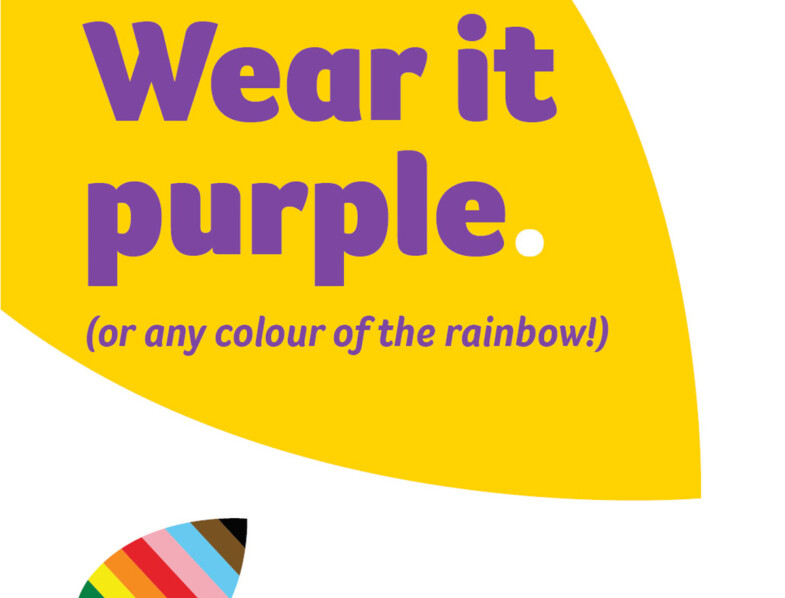Today we are getting behind ‘Wear It Purple Day’!
By supporting this day and wearing purple we hope to show support for LGBTIQ+ Western Australians.
Research shows that an LGBTIQ+ person may experience unique and additional challenges around cancer prevention, screening, diagnosis, and treatment.
These challenges can include a fear of negative reactions if they come out as LGBTIQ+ to health professionals, a history of discrimination and lack of LGBTIQ+ specific cancer support or knowledge.
Evidence also shows that LGBTIQ+ communities have lower cancer screening participation rates and higher numbers of those who have never screened than the general population.
People from these communities can experience specific and significant barriers to participating in all of the important national screening programs, but in particular cervical screening.
This is why we choose messaging to encourage cervical screening in all eligible women and people with a cervix, and strive to raise awareness of the now universal option of a self-collected cervical screening.
Higher levels of depression and anxiety are also experienced because of issues arising from ‘minority stress’. The Out with Cancer research project shows LGBTIQ+ people experience higher levels of distress during cancer treatment and have poorer cancer outcomes. Rates of distress were 3-6 times higher in LGBTQI+ communities.
The inequities don’t end there. Did you know back in the ‘90s tobacco companies used advertising, giveaways and sponsorship of Pride events to buddy up to the LGBTIQ+ community? This is one of the reasons LGBTIQ+ people are more likely to smoke – and smoking causes 16 different types of cancer.
Our purpose is to work with our community to reduce the incidence and impact of cancer amongst ALL Western Australians. The LGBTIQ+ community is a priority for us to support, given these gaps in outcomes for people within this community.
We want everyone, no matter of how they identify, to feel safe, heard and supported before anything else, when accessing screening, diagnosis, treatment and palliative care.
You first, then cancer.
To find out more, visit our LGBTQI+ People and Cancer brochure.
